Fresh herbs & vegetables add real flavour and taste to recipes.
Yes, growing them at home can be really easy and will provide you with fresh ingredients every time.
But, the key is to grow the types you use in recipes and are also not easily available in shops. Giving your meals real unique flavour and reflect your cooking skills.
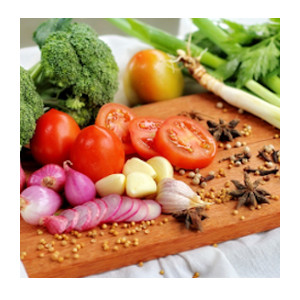
Article details
Below you will find:
- 10 Best Plants Every Chef Should Grow and why.
- Easy way to grow them at home
- How to start & what to do
- Often asked questions
Taking them in turn
A. The 10 best plants every chef should grow, and why.
When growing plants for cooking then I always work on 2 key items:
- How often do I use them
- How easy are they to get
Yes, most of the popular herbs & vegetables are available in shops & supermarkets.
However fresh homegrown herbs will give your recipes a much better taste and are always available.
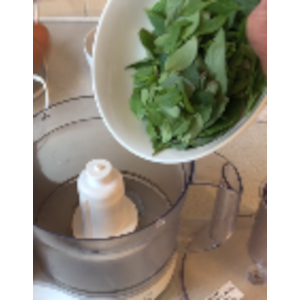
In the list below you might notice most of them are herbs. Simple reason is that herbs are easy to grow, don’t take up much space and are ideal for many different recipes.
1. Genovese Basil
Genovese basil is one of the most popular herbs in the world, used in many recipes.
But if you buy basil in a shop then you will most likely get either sweet or Genovese basil. (very often called the same, but they have different flavours)
The only way you can guarantee to use the right basil is to grow it at home. How to grow Genovese basil
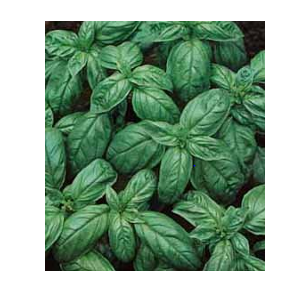
2. Cinnamon Basil
Cinnamon basil (also known as Mexican spice basil) has a very spicy, fragrant aroma and flavour.
It is ideal for Mexican or South American recipes. (Or as in the picture for cinnamon basil iced tea)
This type of basil is not often available in shops, which is why it’s ideal to grow at home. How to grow Cinnamon basil
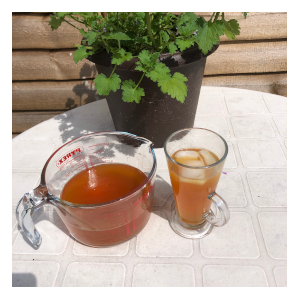
3. Leaf coriander (cilantro)
Coriander herb (or cilantro) is one of the most popular herbs in the world – used in many different recipes.
Ideal for recipes like Chinese stir-fry, Mexican Salsa, etc
Yes, you can buy it in most shops but it’s very easy to grow at home. And will provide you with a non stop supply of fresh leaves. How to grow leaf coriander
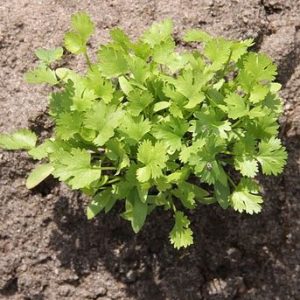
4. Spearmint
Spearmint is extensively used as an ingredient in recipes which require a delicate minty flavour.
But beware – mint plants are often described as the psychopaths of the plants.
You need to grow them in pots or they will invade everywhere. How to grow spearmint
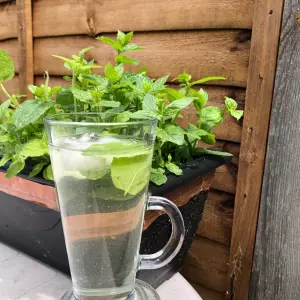
5. Tuscan Blue Rosemary
Rosemary is a key ingredient in many Mediterranean recipes.
The chef’s favourite, ideal for Mediterranean recipes.
It’s lovely to grow at home, as it just keep growing & growing. And you simply cut whatever you need.
When grown at home you have instant supply. How to grow rosemary
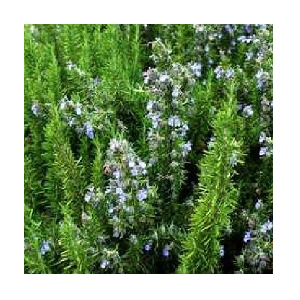
6. Hot & Spicy Oregano
Oregano flavour with the heat of a mild chili pepper.
Great for Mexican recipes – or if you want to spice up Italian meals.
It’s not available as an ingredient in shops and great to grow at home. Takes about 2 to 3 months to grow before harvesting. How to grow oregano
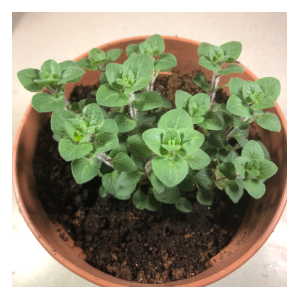
7. French thyme
French thyme has a very strong thyme flavour, and ideal for stews, soups, meat and fish dishes.
Yes, you can buy it in shops. But growing at home will save you money and you can also freeze it (as in the picture) to have fresh thyme all year long.
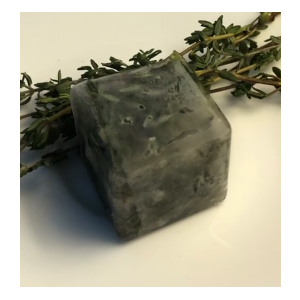
8. Roma tomatoes
The Roma tomato is the ideal tomato, with a very nice flavour.
It is in a completely different league from the regular tomatoes sold in shops.
From this site you might notice I grow it a lot, every year, at home. Simple reason is that it makes lovely tasting fresh tomato recipes like passata, tomato sauce, etc.
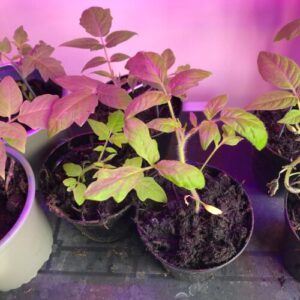
9. Cayenne pepper
They are so pretty !!! A real talking point for visitors.
Very easy to grow and great for adding heat to recipes, like soups, meats and even desserts.
It is also a pepper type used in many different pepper recipes as it has a lovely moderately hot flavour.
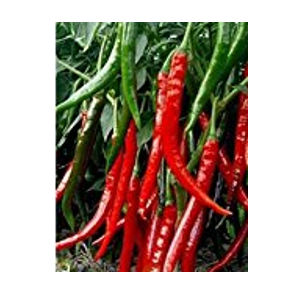
10. Messidrome Garlic
Most shops only sell 1 type of garlic – but there are over 600 different varieties of garlic. Each add a different taste & flavour to recipes.
Messidrome is the garlic most often used in French kitchens, ideal for slow cookers.
Well worth growing at home, and you will notice the difference when cooking. How to grow garlic
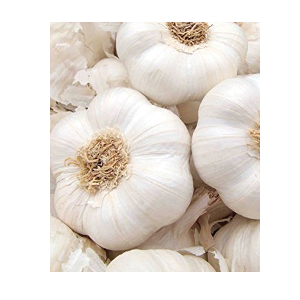
B. Easy way to grow them at home
If you follow the links for each plant you might notice the growing methods are often similar. (Except for garlic which we always recommend growing outside, due to the smell)
We have a section called ‘grow your own‘ which covers all the main items & decisions. For example:
- Do you want to grow your plants indoors or outside
- Do you want to grow them using soil or water (hydroponics)
- 4 key tips on the fastest way to grow plants from seed
- etc., etc.
Each option is to follow the links the ‘grow your own‘ section
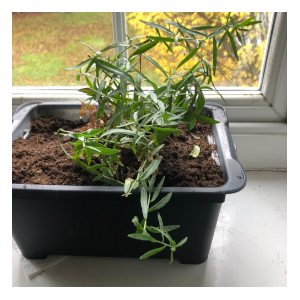
C. How to start & what to do
The list of the 10 Easy Plants every chef should grow is based on popular recipes & meals.
However your own individual tastes and requirements might be different – for example you might like cooking Thai stir fry dishes. In which case Thai basil might be on the list.
The easiest way is to either have a look at our regional recipe ingredients articles or our example recipes

D. Often asked questions about the best plants to grow
Hopefully our articles will help, but the questions I get asked most often are:
Should I grow from seed, plug or buy a plant?
If you have a look at the articles you might notice that in most cases I will grow plants from seed.
Simple reason is that it’s so much cheaper – a packet of seed will generate many plants compared to buying 1 plant, often at a higher price.
However, the advantage of plug plants is that they will grow a lot faster. Very much an individual decision.
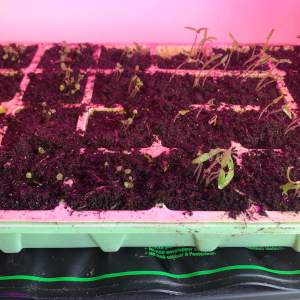
Are Vegetables good for growing at home?
According to Worldatlas the most popular vegetables in the world (in order of usage – i.e. used in recipes & meals) are:
1 Tomatoes, 2 Onions, 3. Cucumbers and Gherkins 4 Cabbages and other brassicas, 5 Eggplants/Augergines, 6 Carrots and Turnips, 7 Chillies and Peppers, 8 Lettuce and Chicory, 9 Spinach, 10 Garlic
If you have space (for example an allotment or big garden) then vegetables are great for growing at home.
However, they are usually available in most shops. I designed the list above based on limited space. But if you have space have a look at the fruit & vegetable section and follow advice for individual plants
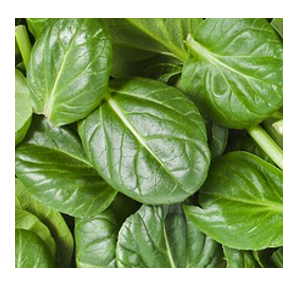

Leave a Reply